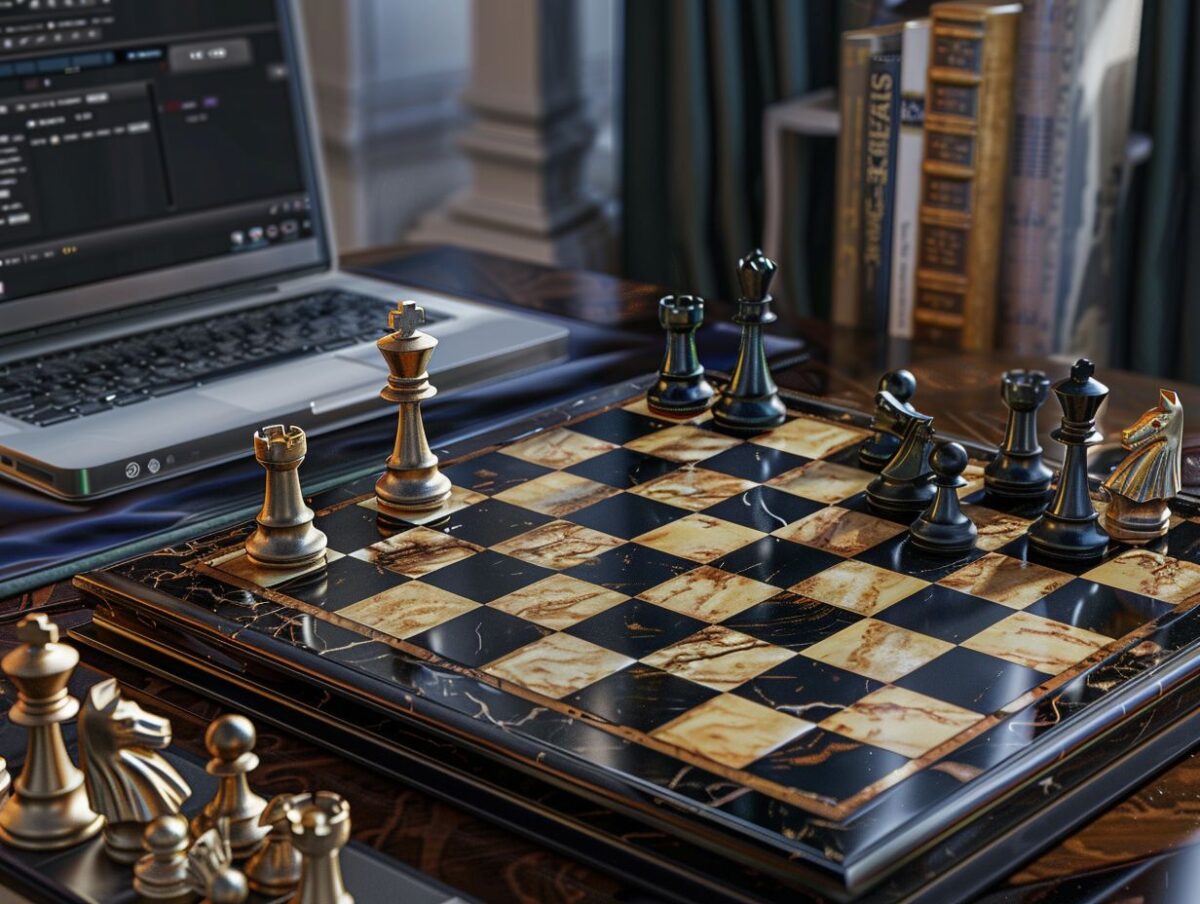Are you looking to unlock the secrets of chess mastery?
In this article, we will explore why chess mastery is important, how you can improve your skills, common mistakes to avoid, essential skills to develop, and how our online platform can help you on your journey.
From studying the basics to analyzing your games and learning from experienced players, we have all the tips you need to take your chess game to the next level.
So, let’s dive in and discover the key to becoming a chess master!
What is Chess Mastery?
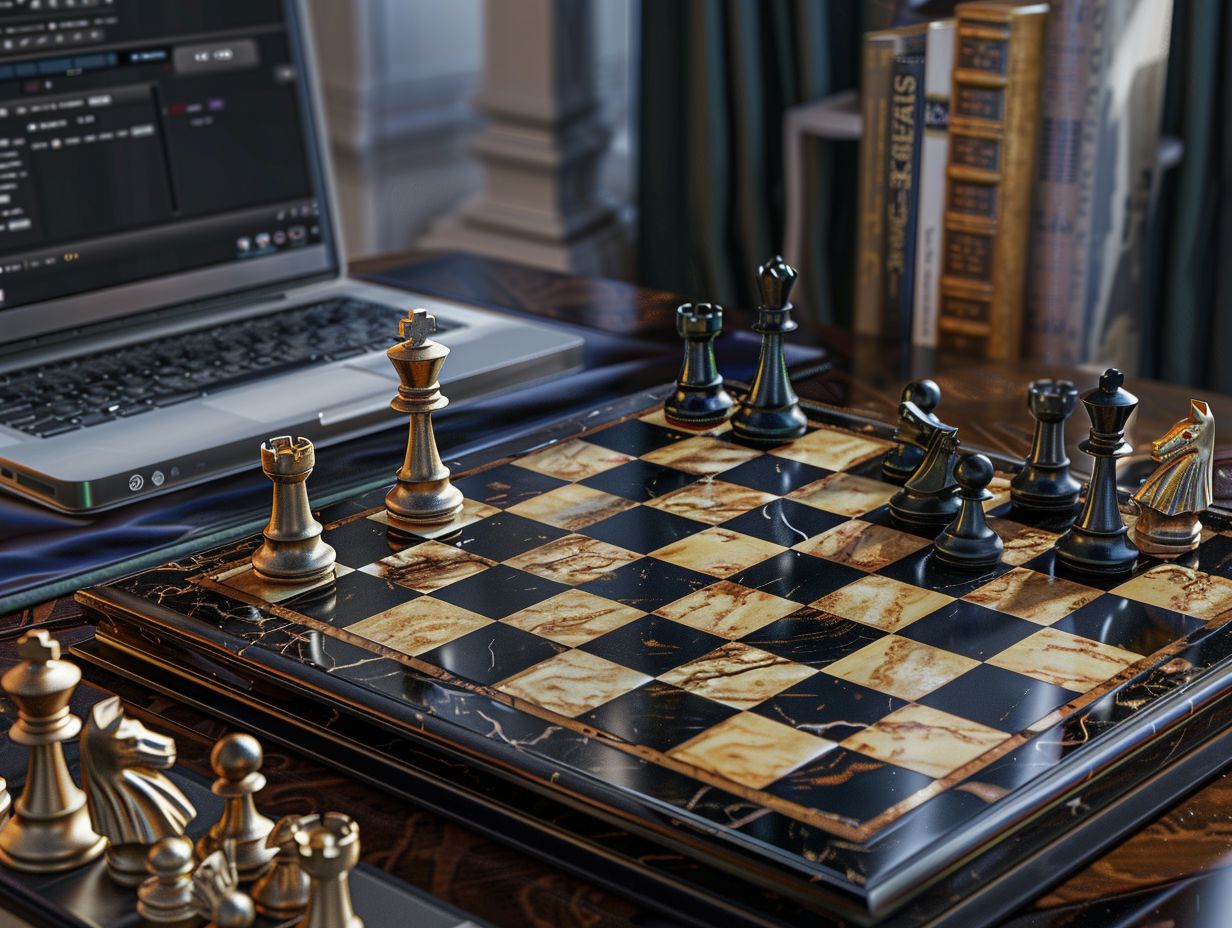
Chess Mastery entails unlocking the secrets of the game, delving deep into its intricacies, and reaching a level of expertise that allows players to outmaneuver opponents with strategic finesse and tactical prowess. Mastering Chess involves more than just knowing the rules; it requires a deep understanding of the game’s nuances, from opening moves to endgame strategies, culminating in the ultimate goal of achieving checkmate.
Players who seek to master chess must dedicate countless hours to studying various aspects of the game, such as pawn structures, piece coordination, and positional play. Understanding key concepts like control of the center, development of pieces, and creating strong pawn chains is essential for building a solid foundation in chess.
Analyzing grandmaster games, practicing tactics, and honing positional judgment are pivotal in enhancing one’s chess skills. Each move in chess carries strategic weight, and a deep dive into these strategic and tactical aspects is crucial for achieving mastery in this intellectually stimulating game.
Why is Chess Mastery Important?
Chess Mastery is crucial for players looking to enhance their skills, sharpen their strategic thinking, and hone their tactical prowess. By mastering chess, players can develop a deeper understanding of strategy and tactics, leading to improved decision-making, better game plans, and the ability to outmaneuver opponents effectively.
Achieving mastery in chess not only refines one’s cognitive abilities but also cultivates patience, perseverance, and strategic foresight. As players delve deeper into the intricacies of the game, they learn to anticipate their opponent’s moves, adapt to changing circumstances, and think several steps ahead. This mental discipline acquired through chess transcends the board and seeps into various aspects of daily life, enhancing problem-solving skills, critical thinking, and overall decision-making prowess.
How to Improve Your Chess Mastery?
Improving your Chess Mastery involves a combination of consistent practice, dedicated training, and exposure to competitive play. By studying the basics, analyzing your games, practicing consistently, and learning from experienced players, you can enhance your skills and progress towards mastering chess.
Engaging in practice exercises regularly is crucial to reinforce your understanding of strategic concepts and develop your tactical skills. Supplement your practice with structured training programs that focus on openings, middlegame tactics, endgames, and overall game strategy.
Seek out competition opportunities to apply what you’ve learned in real games, whether through local chess clubs, online platforms, or tournaments. The more you immerse yourself in all aspects of chess—practice, training, and competition—the quicker you’ll see improvements in your gameplay and overall mastery.
Study the Basics
Studying the basics of chess is essential for players aiming to master the game. Learning fundamental concepts, opening principles, and endgame strategies forms the foundation for skill development and strategic understanding.
- By grasping the opening principles, players can efficiently develop their pieces, control the center, and secure a solid position for the middle game.
- Understanding endgame strategies allows players to navigate the complexities of achieving checkmate or securing a draw even in seemingly equal positions.
- Mastering positional understanding enhances a player’s ability to anticipate their opponent’s moves, strategize effectively, and exploit weaknesses in the opponent’s position.
Through consistent study and practice, chess enthusiasts can enhance their decision-making skills and elevate their gameplay to new levels of proficiency.
Analyze Your Games
Analyzing your games is a critical aspect of improving Chess Mastery. By reviewing your moves, identifying mistakes, and understanding alternative moves, you can enhance your analytical skills and strategic decision-making.
This process of game analysis not only helps you spot your errors but also allows you to delve deeper into the intricacies of each move, dissecting the rationale behind your decisions. It provides invaluable insights into your playing style, strengths, and weaknesses, paving the way for targeted improvement. Through mistake correction and strategic evaluation, you can fine-tune your gameplay and stay one step ahead of your opponents. By consistently analyzing your games, you develop a sharp eye for recognizing patterns, anticipating responses, and making more calculated moves.
Practice Consistently
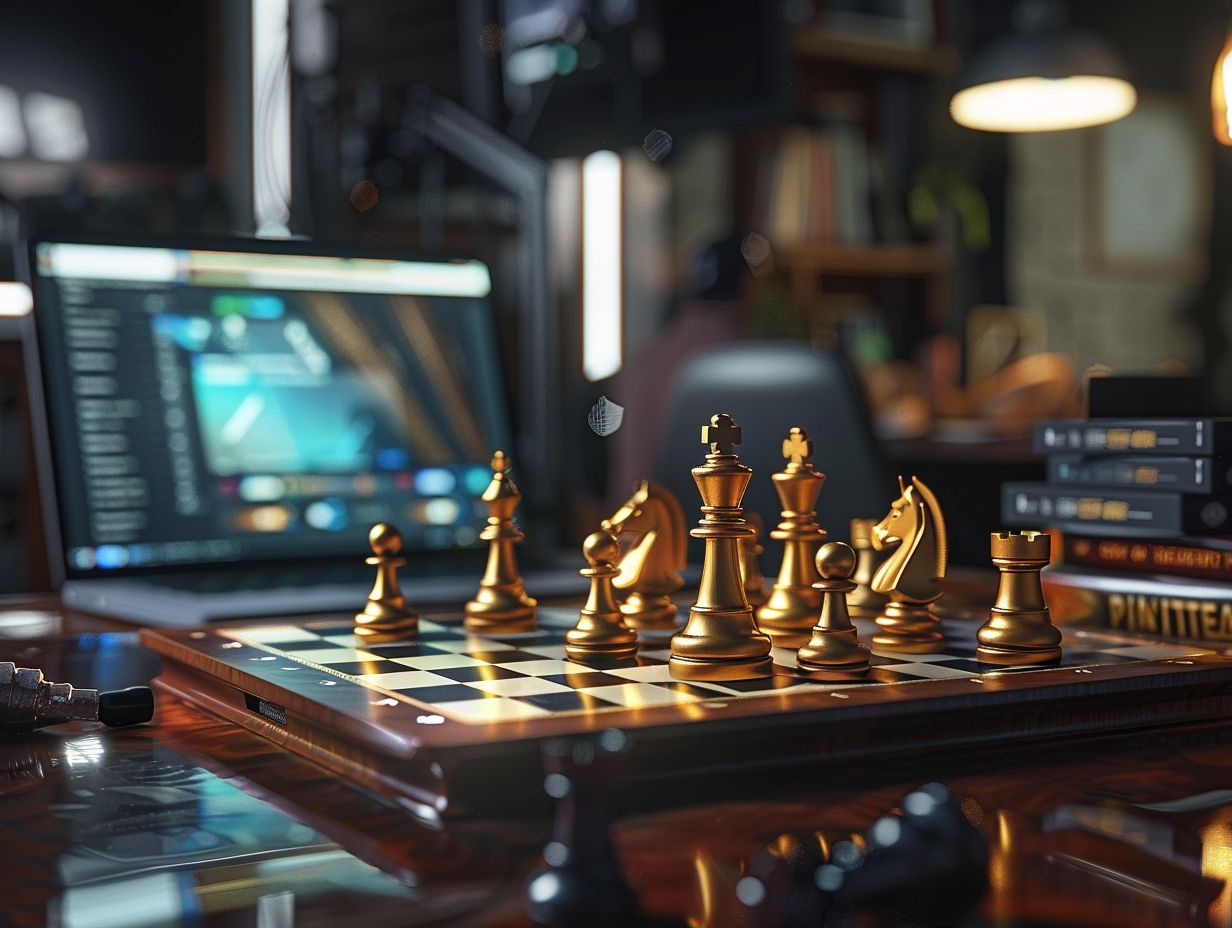
Consistent practice is key to advancing in Chess Mastery. By regularly engaging in practice exercises, honing your skills, and following a structured practice regimen, you can gradually improve your gameplay and strategic thinking.
This kind of regular practice not only helps in mastering the basics but also aids in developing advanced techniques and strategies. Skill development in chess requires continuous refinement, and by dedicating time to practice, players can enhance their ability to anticipate opponents’ moves and plan ahead.
Creating a consistent practice routine allows players to work on specific areas where they may need improvement, such as endgame tactics or opening theory. The more varied and challenging the practice exercises, the better prepared a player will be to face different opponents and scenarios.
Learn from Experienced Players
Seeking advice from experienced players is a valuable strategy for enhancing Chess Mastery. Learning from seasoned experts, engaging with the online community, and receiving expert advice can provide unique insights and perspectives on chess strategies.
By connecting with those who have dedicated years to mastering the game, aspiring players can benefit from a wealth of knowledge and wisdom. Expert advice not only helps in understanding advanced tactics but also aids in developing a strategic mindset essential for success in competitive play. Active participation in the online chess community offers a platform for sharing ideas, analyzing games, and gaining valuable feedback from a diverse range of players with varying styles and approaches.
What Are the Common Mistakes in Chess Mastery?
In the pursuit of Chess Mastery, players often fall prey to common mistakes that hinder their progress. Blunders, improper sacrifices, and overlooking key aspects like piece development or position can lead to setbacks that require vigilant mistake correction.
Blunders, for instance, are often the result of overlooking potential threats or miscalculating the opponent’s response. Making an ill-timed sacrifice can also backfire if not carefully considered, shifting the balance of power on the board. Successful chess players understand the importance of analyzing their mistakes to avoid repeating them in future games.
Mistake correction is a crucial skill in chess, allowing players to learn and grow from their errors, ultimately enhancing their strategic thinking and gameplay.
Neglecting Development
Neglecting piece development is a common mistake in Chess Mastery. Failing to focus on improving the position of your pieces, formulating an improvement plan, and assessing your skills can impede your progress towards mastering chess.
Piece development plays a crucial role in the overall strategy of a chess game. Without making conscious efforts to develop your pieces effectively, you may find yourself in a position of disadvantage.
To address this issue, creating a detailed improvement plan can help you identify areas that need work and set specific goals to enhance your gameplay. Regular skill assessments can provide valuable insights into your strengths and weaknesses, guiding you towards areas that require more attention.
Strategic piece positioning is key to gaining control over the board and setting up powerful attacks or defenses.
Focusing Too Much on Material
Overemphasizing material gain is a pitfall in Chess Mastery. While controlling pieces and acquiring advantages is crucial, focusing solely on material can detract from strategic planning, effective tactics, and overall mastery of chess.
It is vital to strike a balance between material control, strategic planning, and tactical execution to excel in the game of chess. By fixating solely on capturing opponent pieces for material gain, one may miss out on the deeper layers of the game.
Strategic thinking involves long-term planning, maneuvering pieces strategically, and anticipating moves to create advantageous positions. Effective tactics, on the other hand, require precise calculations, clever sacrifices, and a keen eye for potential threats and opportunities.
Therefore, a comprehensive approach that integrates material control with strategic awareness and tactical finesse is essential for achieving true Chess Mastery.
Ignoring the Center
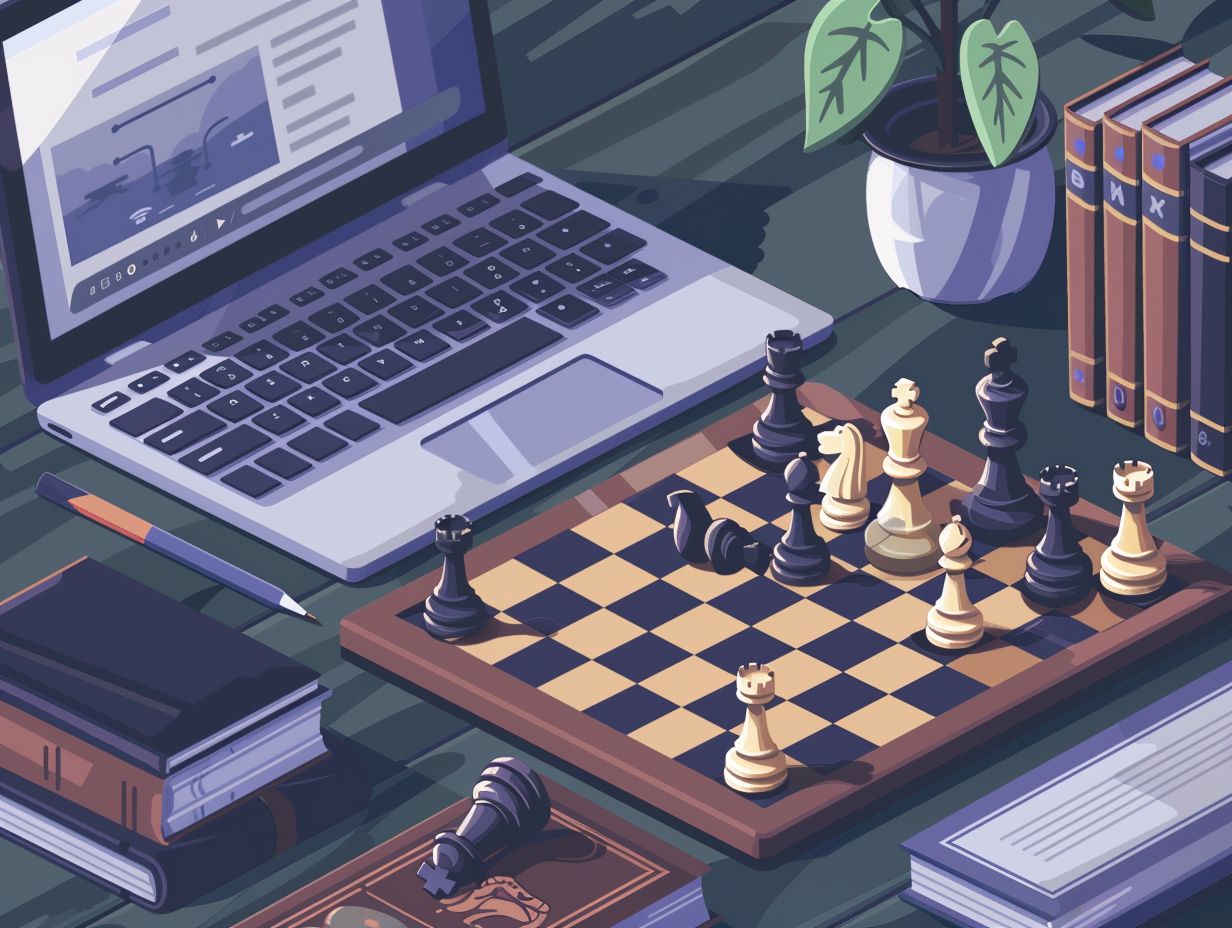
Ignoring the importance of the center in chess is a critical mistake in Chess Mastery. Failing to control the central squares, establish board dominance, and capitalize on central positioning can limit strategic options and hinder overall game performance.
When players focus on the center of the board, they command a pivotal position that influences the entire game. The center provides a strong base for launching attacks on opponent weaknesses while simultaneously defending vulnerable areas. Securing central control enables players to maneuver their pieces efficiently, creating optimal lines of attack and defense. By maintaining a stronghold in the center, one can often dictate the flow of the game, forcing the opponent to react defensively and paving the way for a strategic advantage.
Not Considering Opponent’s Moves
Failing to consider your opponent’s moves is a common oversight in Chess Mastery. Neglecting to anticipate and counter your opponent’s strategies, making decisions without assessing potential threats, and lacking tactical awareness can lead to vulnerabilities and suboptimal gameplay.
Understanding the importance of opponent moves is crucial in the realm of chess. Strategic decision-making hinges on the ability to foresee and react to the opponent’s potential maneuvers. By analyzing the opposition’s strategies, players can adapt their tactics to outmaneuver and gain a competitive edge. Recognizing the significance of opponent moves enhances one’s overall gameplay, fostering a proactive and comprehensive approach to chess. An awareness of the opposition’s plans not only fortifies one’s defensive capabilities but also opens up avenues for offensive maneuvers, creating a dynamic and engaging chess experience.
What Are the Essential Skills for Chess Mastery?
Essential skills are fundamental to achieving Chess Mastery, encompassing calculation skills, strategic planning, positional understanding, and endgame knowledge. Developing these skills is crucial for enhancing tactical vision, pattern recognition, and overall proficiency in chess.
Among these essential skills, having strong calculation skills is a cornerstone for success in chess. It involves the ability to foresee and analyze multiple moves ahead, evaluating various possible outcomes and their consequences.
Tactical vision is another critical aspect, enabling players to spot and capitalize on tactical opportunities during a game. A deep understanding of positional play is necessary to create strong, strategic plans and maneuvers.
Mastering endgame techniques is vital for converting advantages into wins as well as defending challenging positions.
Calculation and Visualization
Calculation and visualization skills are paramount in Chess Mastery. The ability to calculate variations, recognize patterns, and manage time effectively contributes to strategic decision-making, tactical precision, and overall gameplay proficiency.
Developing pattern recognition allows players to anticipate opponent moves and formulate successful strategies. Mastering time control ensures that players can think through their moves thoroughly without succumbing to time pressure. Efficient calculation skills not only help players accurately assess different outcomes but also pave the way for intuitive decision-making. Ultimately, the combination of these skills empowers players to navigate complex game dynamics with precision and confidence, elevating the overall quality of their gameplay.
Strategic Planning
Strategic planning is a cornerstone of Chess Mastery. Developing a game plan, understanding positional nuances, and formulating strategic maneuvers are essential components for outwitting opponents and achieving success in chess.
By strategically evaluating the strengths and weaknesses of both players, one can create a roadmap for success. Positional understanding allows players to recognize the value of each piece and its placement on the board, aiding in the formulation of effective game plans. A well-thought-out strategy considers long-term goals and potential threats, guiding players towards making moves that align with their overall objectives.
Positional Understanding
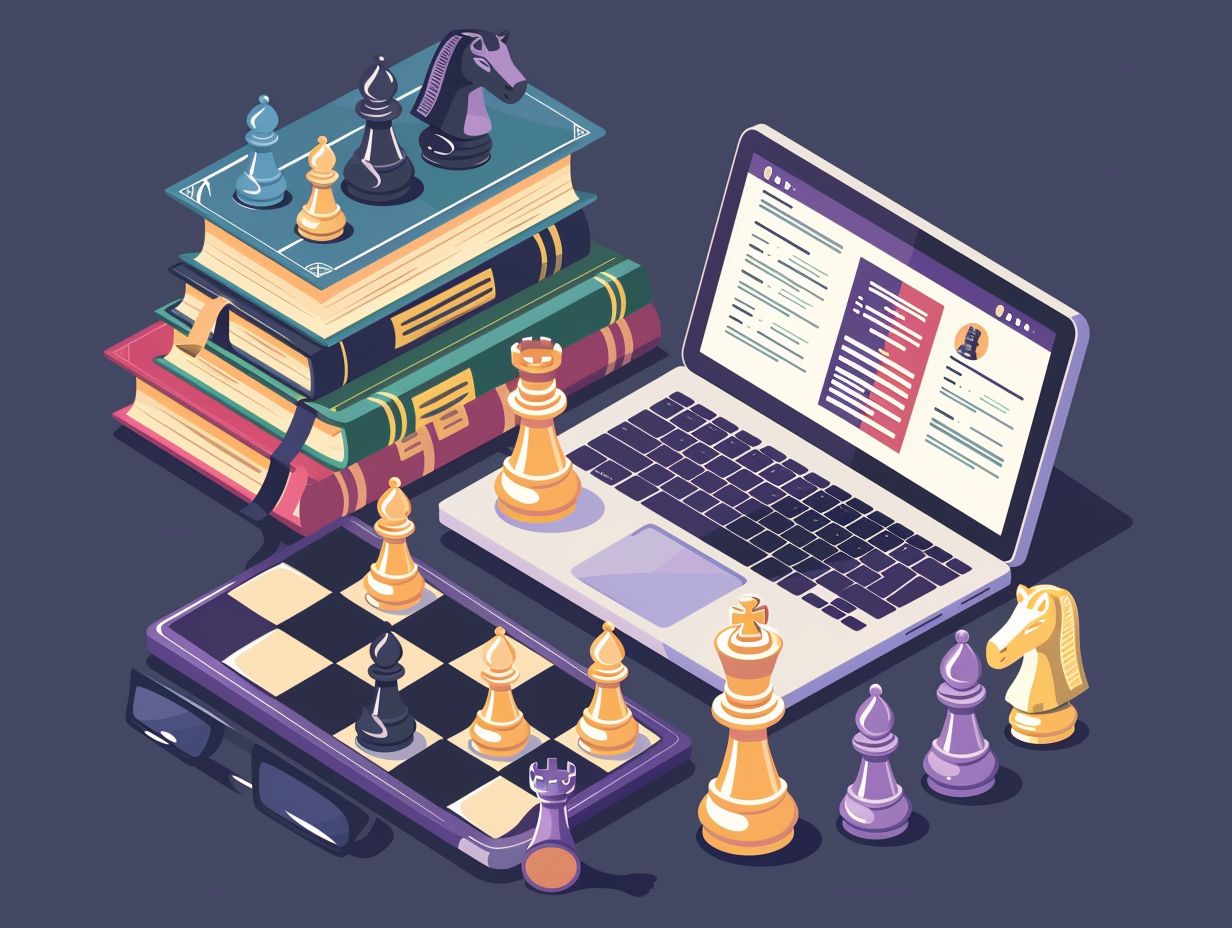
Positional understanding is key to Chess Mastery. Grasping the nuances of position evaluation, endgame strategies, and strategic guides enables players to navigate complex board positions, plan effective strategies, and execute winning maneuvers.
Understanding the endgame strategies is crucial as it allows players to transition from the middle game to the final stage with a clear goal in mind. Strategy guides serve as roadmaps, offering insights into various tactical motifs and plans that can be employed based on the position assessment. By honing their positional understanding, players can anticipate their opponent’s moves, anticipate threats, and position their pieces optimally for both defense and attack.
Endgame Knowledge
Endgame knowledge plays a critical role in Chess Mastery. Understanding checkmating patterns, executing checkmates efficiently, and capitalizing on endgame strategies are essential for securing victories, consolidating advantages, and mastering the final stages of chess.
In chess, checkmating patterns serve as the blueprint for achieving victory by cornering the opponent’s king. Recognizing key patterns like the Arabian Mate, Anastasia’s Mate, and the famous Scholar’s Mate enables a player to anticipate and deliver decisive blows.
Once a player reaches the endgame phase, where the board is less cluttered and strategic maneuvers are crucial, knowing how to convert material or positional advantages into a checkmate is paramount. Endgame strategies like the opposition, triangulation, and zugzwang are instrumental in outmaneuvering the opponent and achieving checkmate, ultimately leading to victory.
How Can Our Online Platform Help with Chess Mastery?
Our online platform offers invaluable support for enhancing Chess Mastery. By providing access to experienced coaches, personalized training programs, an extensive library of resources, and opportunities for regular tournaments and challenges, our platform aims to empower players on their journey to mastering chess.
Through our expert coaches, players can receive personalized feedback tailored to their unique playing style and areas for improvement. With the abundance of online resources available, from tutorials to practice exercises, members can enhance their skills at their own pace. Engaging in regular tournaments not only provides a platform to test one’s strategies but also fosters a sense of community and healthy competition within the platform.
Access to Experienced Coaches
Access to experienced coaches is a game-changer in Chess Mastery. Through online coaching, players can benefit from personalized feedback, curated learning paths, and access to a comprehensive chess library, enhancing their skills and strategic understanding.
Online coaching offers the flexibility of scheduling sessions at convenient times, allowing players to receive guidance from top-notch coaches regardless of their location. The structured learning paths help players progress systematically, focusing on areas that need improvement and building a strong foundation. The vast collection of resources in the chess library enables players to study classic games, explore new strategies, and deepen their knowledge of chess theories and tactics.
Personalized Training Programs
Personalized training programs cater to individual needs in Chess Mastery. By focusing on skill development, engaging game enthusiasts, and offering specialized masterclass series, players can tailor their learning experience and accelerate their progress in mastering chess.
These personalized programs not only provide players with targeted strategies to enhance their gameplay but also create a sense of community and connection among chess enthusiasts.
Through interactive lessons and in-depth analysis, participants can delve deeper into the intricacies of chess tactics and strategies. The incorporation of masterclass series further elevates the learning experience by giving players access to advanced techniques and insights from seasoned chess experts.
Such immersive training opportunities contribute significantly to honing players’ skills and fostering a spirit of continuous improvement within the chess community.
Extensive Library of Resources
An extensive library of resources enriches the learning experience in Chess Mastery. With access to chess lessons, online tutorials, and strategic guides, players can deepen their understanding, explore new techniques, and broaden their strategic repertoire.
These resources provide invaluable support for players at all skill levels, from beginners to advanced players. By studying diverse chess lessons, individuals can enhance their tactical skills, learn opening principles, understand endgame strategies, and even delve into the intricacies of positional play.
Online tutorials offer interactive learning experiences, allowing players to practice visualization techniques and analyze games. Strategic guides serve as roadmaps, guiding players through complex decision-making processes and helping them develop a coherent playing style.
Such a rich library of resources truly accelerates the chess improvement journey.
Regular Tournaments and Challenges
Regular tournaments and challenges foster growth in Chess Mastery. By providing opportunities for competition, enabling progress tracking, and promoting community engagement, players can test their skills, track their improvement, and connect with fellow enthusiasts.
These events not only push players to strategize and think critically but also offer a platform to showcase their learning progress. The competitive dynamics ignite a spirit of continuous improvement and encourage participants to analyze their gameplay, learn from mistakes, and adapt strategies. With progress tracking features, players can assess their strengths and weaknesses, identify areas for growth, and refine their playing style. The sense of community engagement through these tournaments creates a supportive network where players can share insights, exchange tips, and celebrate achievements.
